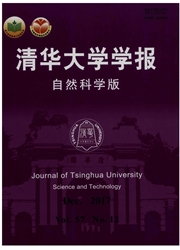

 中文摘要:
中文摘要:
针对复杂离散结构优化存在设计变量多、寻优困难等问题,提出一种基于子结构方法的分解协调策略,并采用基于子结构分解协同优化框架求解。将大规模结构分解为多个不重叠的、规模较小的子结构,每个子结构对应一个学科。将原优化问题的设计变量、优化目标以及约束分配至各个学科。每一轮系统迭代中,系统层仅进行一次完整结构的有限元分析,学科层执行子结构优化和有限元分析。耦合状态变量由系统层输入,在学科层作为定值。系统层进行整体结构分析后更新耦合状态变量值,以协调学科之间耦合状态变量的差异。该方法将复杂的整体结构优化问题分解为多个并行、独立的子结构优化问题。算例表明:相比于整体结构优化,该协同优化方法显著降低了整体结构分析次数,能够更加稳定地找到更优解。
 英文摘要:
英文摘要:
A decomposition strategy based on substructuring is developed for optimizing complex discrete structures with a large number of design variables and a collaborative architecture is used as the solver.A large structure is decomposed into several small substructures with no overlap,where each substructure corresponds to a discipline.The variables,objectives and constraints in the original problem are assigned to the separate disciplines.Only one finite element analysis of the complete structure is performed at the system level during each iteration with optimization and finite element analyses of the substructures at the discipline levels.Coupled state variables are passed from the system level to the disciplines as constants.The coupled state variables are updated after each finite element analysis of the complete structure at the system level to coordinate the differences in the coupled state variables among disciplines.Thus,a complex structural optimization problem is decomposed into several parallel, self-governed subproblems.The results of numerical examples demonstrate that this cooperative optimization method requires less evaluations of the complete structure and is able to obtain better results with better stability than optimizing the complete structure as a whole.
 同期刊论文项目
同期刊论文项目
 同项目期刊论文
同项目期刊论文
 Topology and Sizing Optimization of Skeletal Structures Using Genetic Algorithm with Separate Ground
Topology and Sizing Optimization of Skeletal Structures Using Genetic Algorithm with Separate Ground 期刊信息
期刊信息
